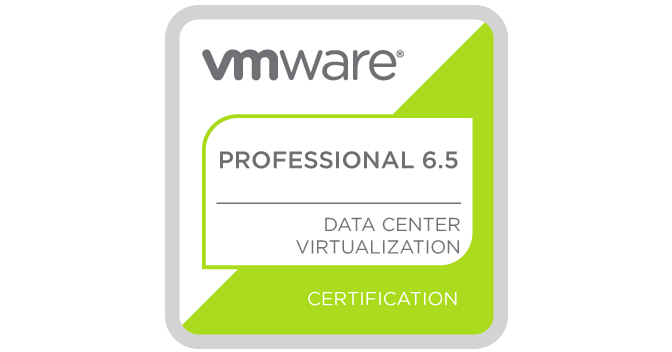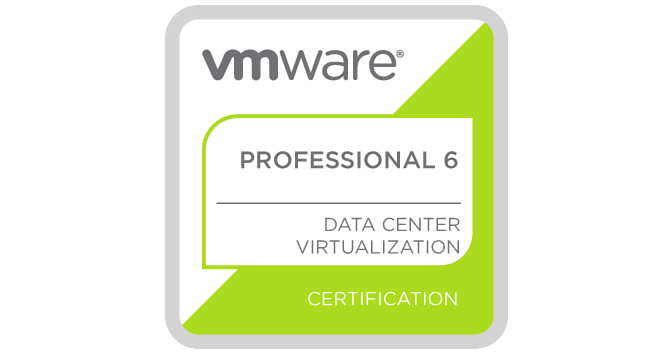In 2025, large enterprise organizations face ever-increasing demands for agility, security, and innovation. Two roles—Platform Engineering and DevOps—have emerged as critical drivers of digital transformation, yet many leaders still grapple with their differences. Understanding how these disciplines diverge and complement each other is essential for modern IT strategy, especially as businesses strive for faster time-to-market, improved reliability, and seamless developer experience.
What is Platform Engineering in 2025?
Platform Engineering has become one of the fastest-growing trends in enterprise IT, often blending responsibilities from Site Reliability Engineering (SRE), cloud architecture, and developer enablement. Platform engineers are responsible for building, automating, and scaling the internal platforms that development teams rely on to deliver business value.
Modern Responsibilities of Platform Engineers:
-
Developer Experience: Building self-service portals, golden paths, and Internal Developer Platforms (IDPs) to streamline application delivery.
-
Site Reliability: Applying SRE principles to ensure high availability, resilience, and observability of platforms.
-
Cloud-Native Architecture: Leveraging Kubernetes, service meshes, and infrastructure-as-code (IaC) to create scalable, secure, and compliant environments.
-
Operational Excellence: Implementing continuous monitoring, incident response, and cost optimization for large-scale, multi-cloud operations.
What is DevOps Today?
DevOps in 2025 is less about job titles and more about a culture and set of practices that bridge the gap between software development and IT operations. DevOps aims to break down silos, enabling faster releases, improved collaboration, and a shared responsibility for delivery and reliability.
Modern Responsibilities of DevOps Teams:
-
CI/CD Automation: Designing end-to-end pipelines that automate code integration, testing, and deployment across hybrid and multi-cloud environments.
-
Configuration and Policy as Code: Maintaining consistent, policy-driven configurations using tools like GitOps and policy engines (e.g., OPA, Kyverno).
-
Collaboration & Communication: Fostering transparency, feedback loops, and blameless postmortems to accelerate learning and innovation.
-
Security Integration (DevSecOps): Embedding security controls into every stage of the software delivery lifecycle.
Integrating Software Delivery: The Glue Between DevOps and Platform Engineering
A critical intersection between DevOps and Platform Engineering is the integration of software delivery—the end-to-end orchestration of all the processes, tools, and best practices required not only to launch software, but to maintain, secure, and evolve it in production. By 2025, the scope of software delivery has expanded dramatically. It is no longer just about “deploying code faster”—it’s about architecting a robust, automated, and observable pipeline that supports compliance, resilience, and rapid innovation throughout the entire lifecycle.
Core Processes and Tools: What’s Really Involved?
Modern integrated software delivery pipelines unite several disciplines:
-
Version Control & Collaboration: Source code and infrastructure are managed via Git-based platforms (e.g., GitHub, GitLab, Bitbucket).
-
Continuous Integration & Testing: Automated build, test, and validation using CI/CD tools (Jenkins, GitHub Actions, GitLab CI, Azure Pipelines, AWS CodeBuild, Google Cloud Build).
-
Artifact & Dependency Management: Storage and versioning of deployment artifacts via repositories like Azure Artifacts, AWS CodeArtifact, Google Artifact Registry, or JFrog Artifactory.
-
Deployment Orchestration: Automated releases with Kubernetes, Terraform, Helm, AWS CodeDeploy, Azure Release Pipelines, or Google Cloud Deploy.
-
Observability & Monitoring: Real-time health and performance visibility via Datadog, Prometheus, AWS CloudWatch, Azure Monitor, Google Cloud Operations Suite (formerly Stackdriver).
-
Security & Compliance: Integration of security scanning, policy enforcement, and secret management using tools like Snyk, Trivy, Aqua Security, HashiCorp Vault, AWS Secrets Manager, or Azure Key Vault.
-
Incident Response & Feedback: Automated incident detection, alerting, and runbooks powered by PagerDuty, Opsgenie, AWS Systems Manager Incident Manager, Azure Monitor Action Groups, or Google Cloud Incident Response.
Platform engineering teams design, provision, and automate these toolchains as reusable, self-service building blocks. DevOps practitioners ensure these tools are integrated seamlessly and that automation pipelines are optimized for feedback, speed, and reliability—breaking down silos between development, security, and operations.
How Major Clouds Approach Integrated Software Delivery
Let’s compare how AWS, Azure, and Google Cloud Platform enable integrated software delivery for large enterprises:
| Aspect | AWS | Azure | Google Cloud Platform |
|---|---|---|---|
| CI/CD Orchestration | CodeCommit → CodeBuild → CodeDeploy → CodePipeline; pipeline gating with V2 rules | Azure DevOps Pipelines (classic & YAML), GitHub Actions; Bicep and ARM integrated via CI | Cloud Build (with GitHub/GitLab), Cloud Deploy; builds trigger K8s rollouts |
| Artifact & Dependency Mgmt | CodeArtifact for packages; ECR for containers; S3 for build artifacts | Azure Artifacts (NuGet/NPM); Azure Container Registry for images; YAML-based promotion | Artifact Registry & Container Registry; integrates with Cloud Build and deployments |
| Infrastructure as Code (IaC) | CloudFormation, CDK, Terraform are standard for infra automation | ARM Templates and Bicep favored; Terraform/Pulumi also prevalent; CI pipelines validate | Deployment Manager, Terraform, and Config Connector for IaC |
| Monitoring & Observability | CloudWatch metrics/logs/alarms; X-Ray tracing; OpenTelemetry via ADOT | Azure Monitor, App Insights, Log Analytics with alert/action integrations | Operations Suite (formerly Stackdriver), Cloud Trace, Profiler |
| Security & Compliance | GuardDuty, Inspector, Macie for threats; Secrets Manager, KMS, IAM, Control Tower | Security Center, Sentinel, Defender, Key Vault, and RBAC across environments | Security Command Center, IAM, Secret Manager; policy enforcement via Config Connector |
| Incident Response & Ops | Systems Manager, Incident Manager, OpsCenter, Lambda-driven automation | Azure Monitor Alerts with Action Groups; Logic Apps and Runbooks for remediation | Incident Response in Operations Suite; Cloud Functions for custom responses |
Platform Strengths in 2025:
-
AWS is renowned for its end-to-end automation and deeply integrated infrastructure tools (CloudFormation, CodePipeline). This enables platform teams to automate everything from code commit to multi-region deployment. AWS’s mature operational tooling (CloudWatch, Systems Manager, GuardDuty) also makes it highly suitable for large-scale, regulated, and security-sensitive environments.
-
Azure excels in hybrid and enterprise scenarios. Its DevOps platform (Azure DevOps, GitHub Actions) is deeply integrated with first-class Infrastructure-as-Code support (Bicep, ARM Templates) and robust security/compliance controls (Defender, Sentinel, Key Vault). Native integration with Microsoft 365 and Azure AD streamlines enterprise-wide policy enforcement and access management.
-
Google Cloud Platform (GCP) is optimized for cloud-native development and modern DevOps workflows, featuring best-in-class CI/CD tools (Cloud Build, Cloud Deploy), native Kubernetes support (GKE), and strong operational analytics. GCP also offers advanced AI/ML-driven operations (AIOps), and robust multi-cloud/hybrid support with Anthos and Config Connector.
Enterprise Implications and Trends
In all three major clouds, the shift in 2025 is toward fully productized, developer-centric platforms where:
-
Automated testing, security, monitoring, and rollback are built into every pipeline.
-
Policy as code enforces compliance automatically at every stage.
-
Observability and incident response are unified with delivery, enabling rapid feedback and near real-time remediation.
-
AI-driven automation (AIOps) predicts, detects, and heals issues with minimal human intervention—helping teams focus on value delivery, not firefighting.
No matter the cloud, success depends on both the right tooling and the operational maturity to design resilient, automated workflows that integrate security, governance, and real-time feedback into daily engineering practice.
Platform Engineering vs DevOps: 2025 Trends and Key Differences
1. Focus and Scope
-
Platform Engineering: Builds and manages the reusable infrastructure, tools, and services that empower developers. Focuses on platform reliability, scalability, and reducing cognitive load for development teams.
-
DevOps: Drives process, cultural change, and automation to integrate development and operations workflows—emphasizing collaboration, continuous delivery, and shared responsibility for outcomes.
2. Site Reliability & Operations
-
Platform Engineering: Often overlaps with SRE, focusing on reliability engineering, SLAs, and operational excellence at the platform layer.
-
DevOps: Ensures operational processes are automated and collaborative, but may not directly own SRE-specific metrics unless combined with SRE roles.
3. Developer Enablement vs. Pipeline Optimization
-
Platform Engineering: Prioritizes creating “paved roads” or golden paths for developers, reducing friction from infrastructure and compliance.
-
DevOps: Focuses on optimizing software pipelines, feedback loops, and removing barriers between development and operations.
4. Organizational Impact
-
Platform Engineering: Centralizes expertise, accelerates developer productivity, and reduces duplication by providing reusable building blocks.
-
DevOps: Spreads best practices across teams, improving deployment frequency, change success rate, and time to recover from incidents.
The Future: Convergence and Collaboration
The lines between Platform Engineering, DevOps, and SRE are increasingly blurred, especially in enterprises adopting platform-as-a-product mindsets. Platform teams provide the tools and platforms, while DevOps culture ensures these are used effectively and securely. In leading organizations, these functions collaborate closely to:
-
Deliver resilient, scalable platforms
-
Empower developers with self-service and automation
-
Continuously improve operational reliability and security
-
Integrate software delivery as a holistic, ongoing discipline—not just a pipeline, but a full lifecycle commitment
Conclusion
For large enterprises in 2025, understanding the distinction between Platform Engineering and DevOps is critical for building high-performing, reliable, and scalable digital products. By aligning these roles and investing in both platform innovation and a DevOps mindset, organizations can achieve true agility, resilience, and developer happiness—key ingredients for digital success in a world where software delivery and operations are inseparably linked.
















